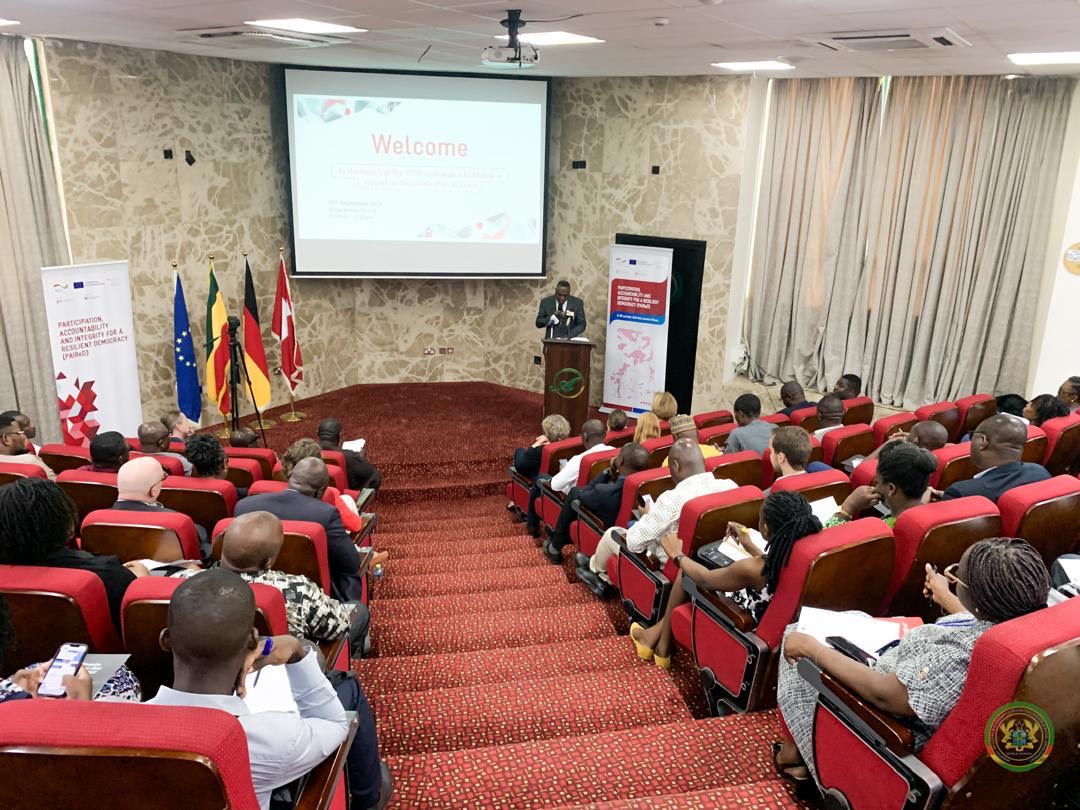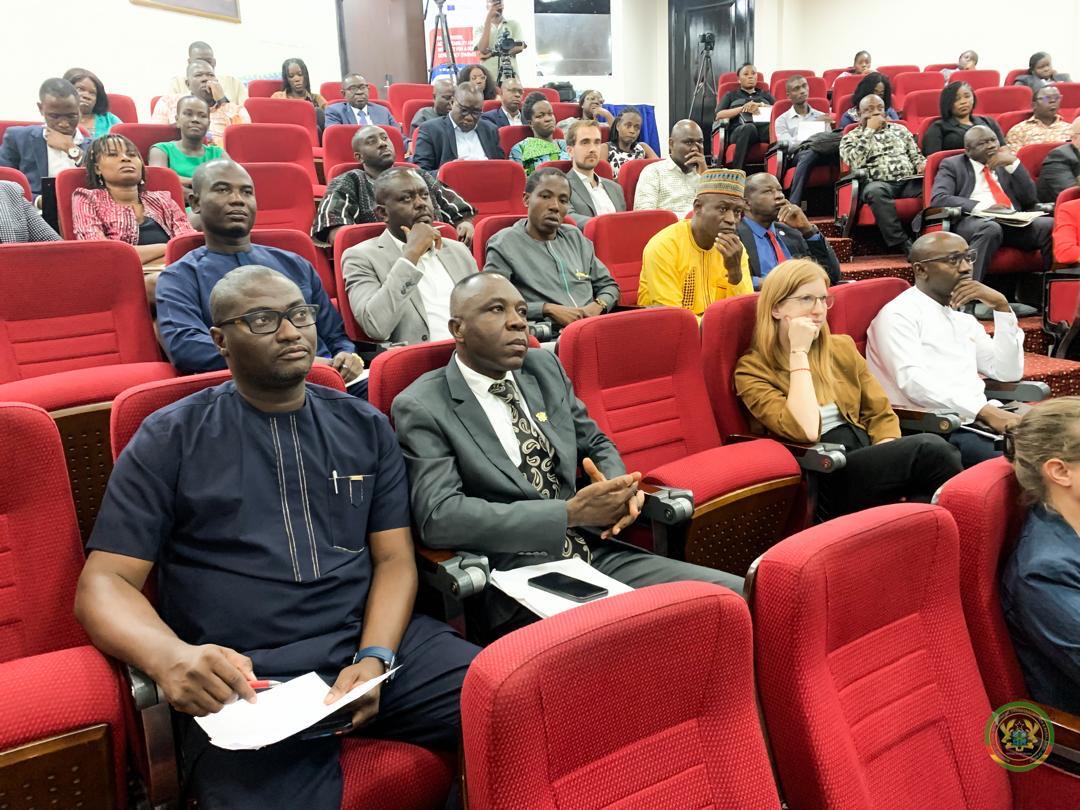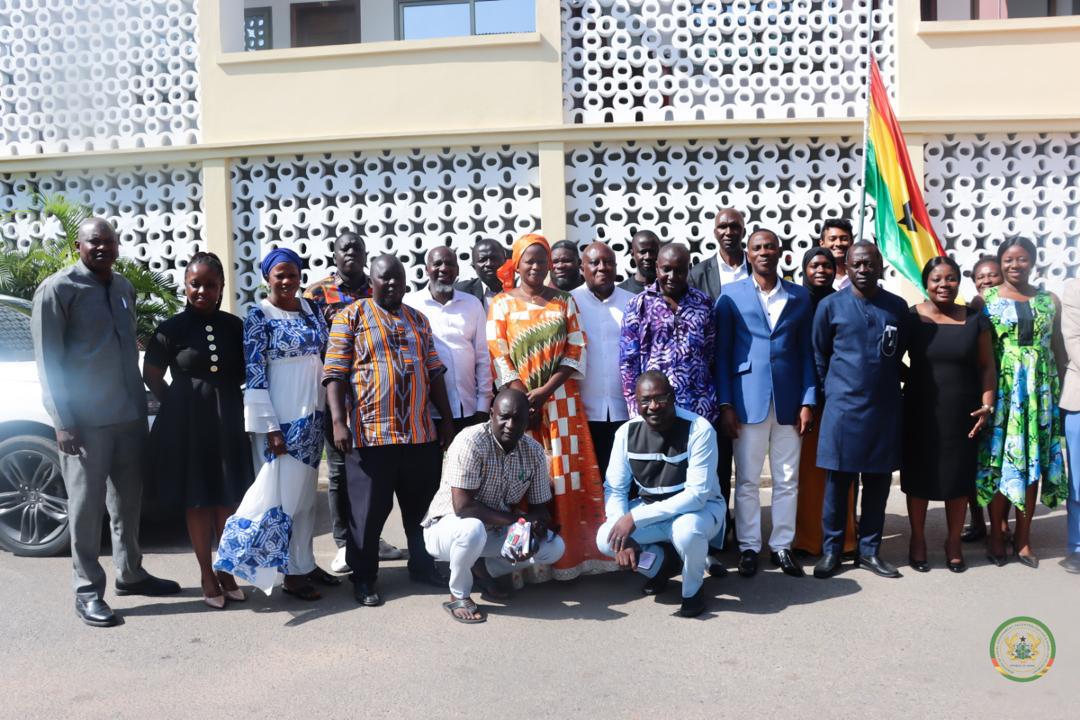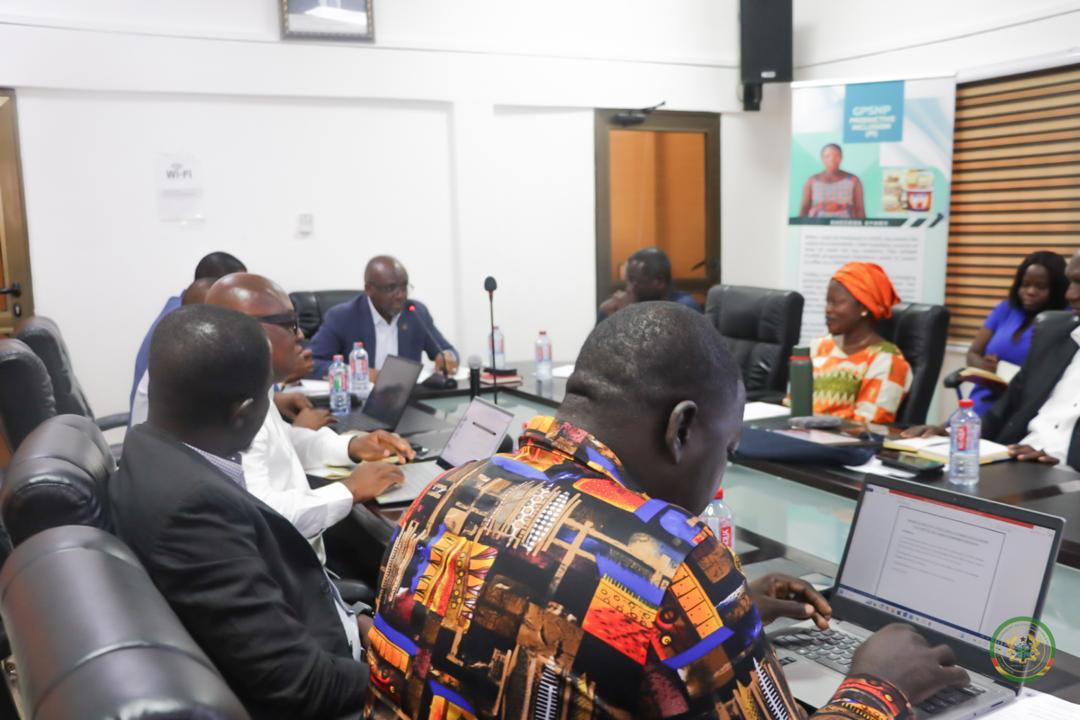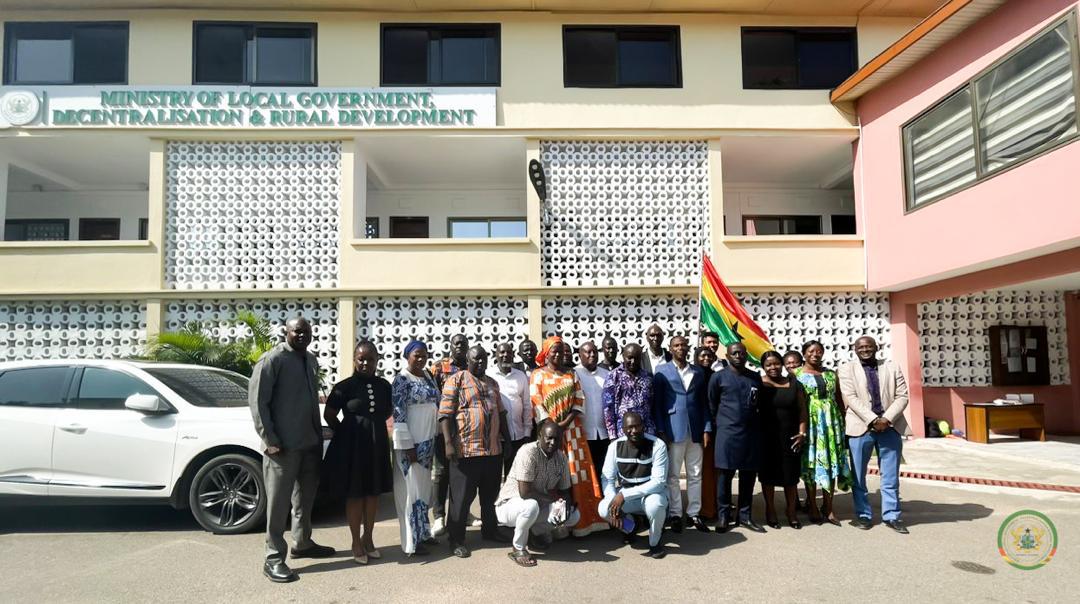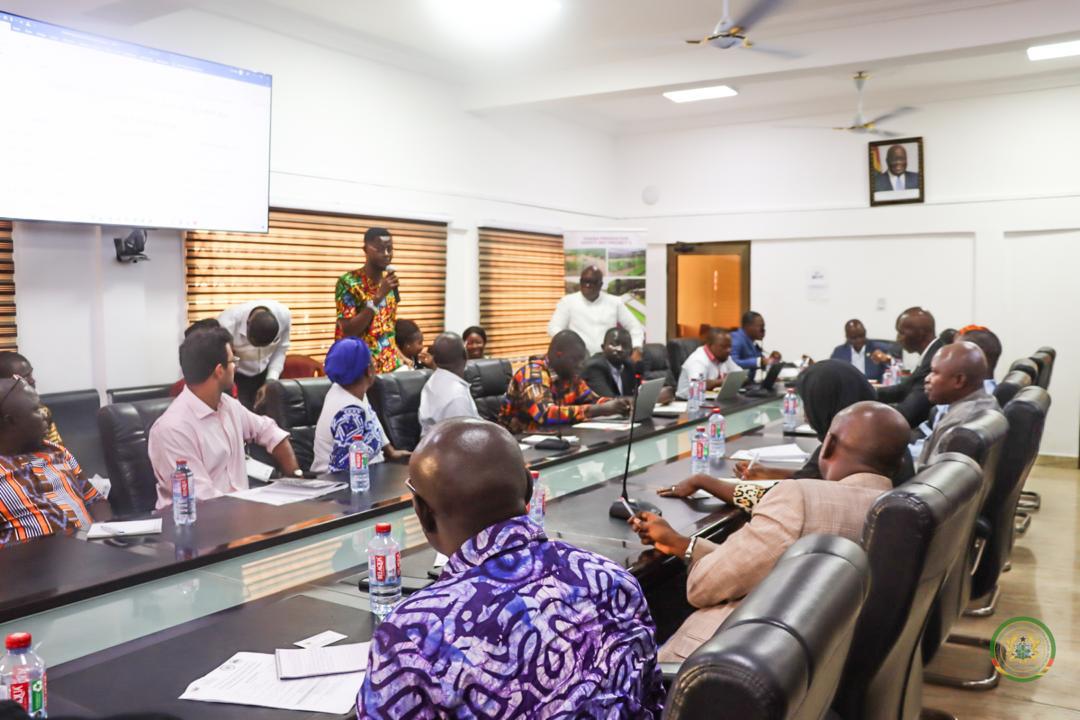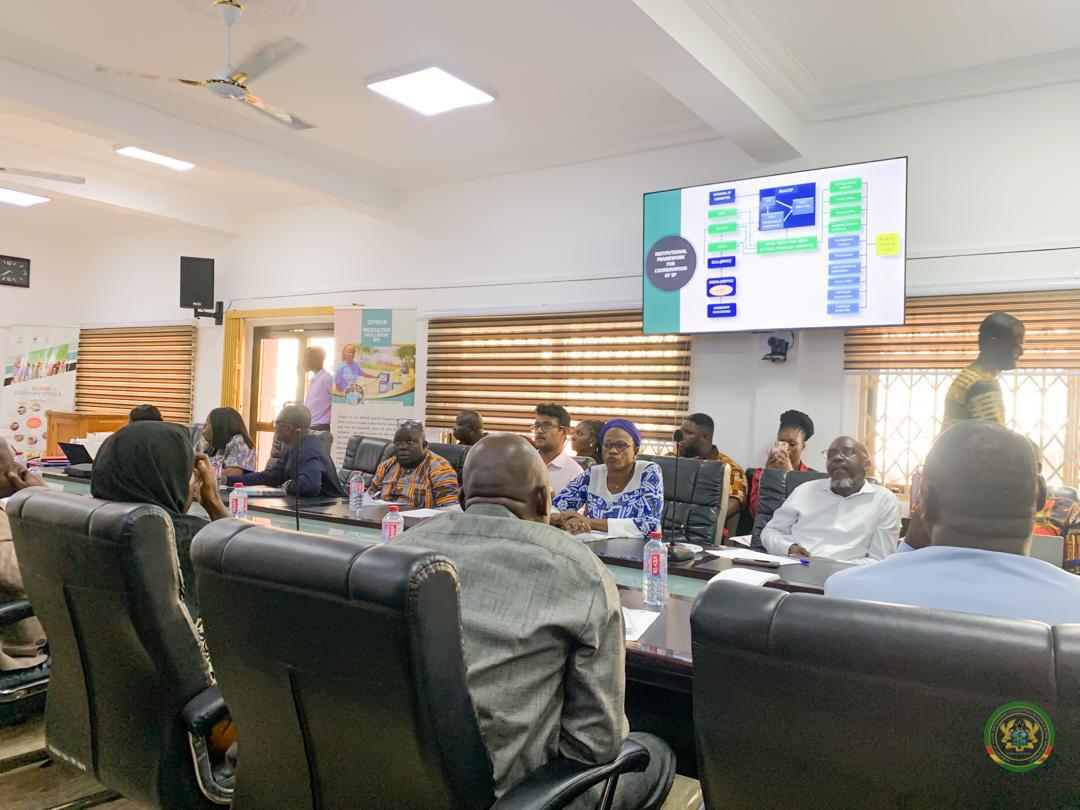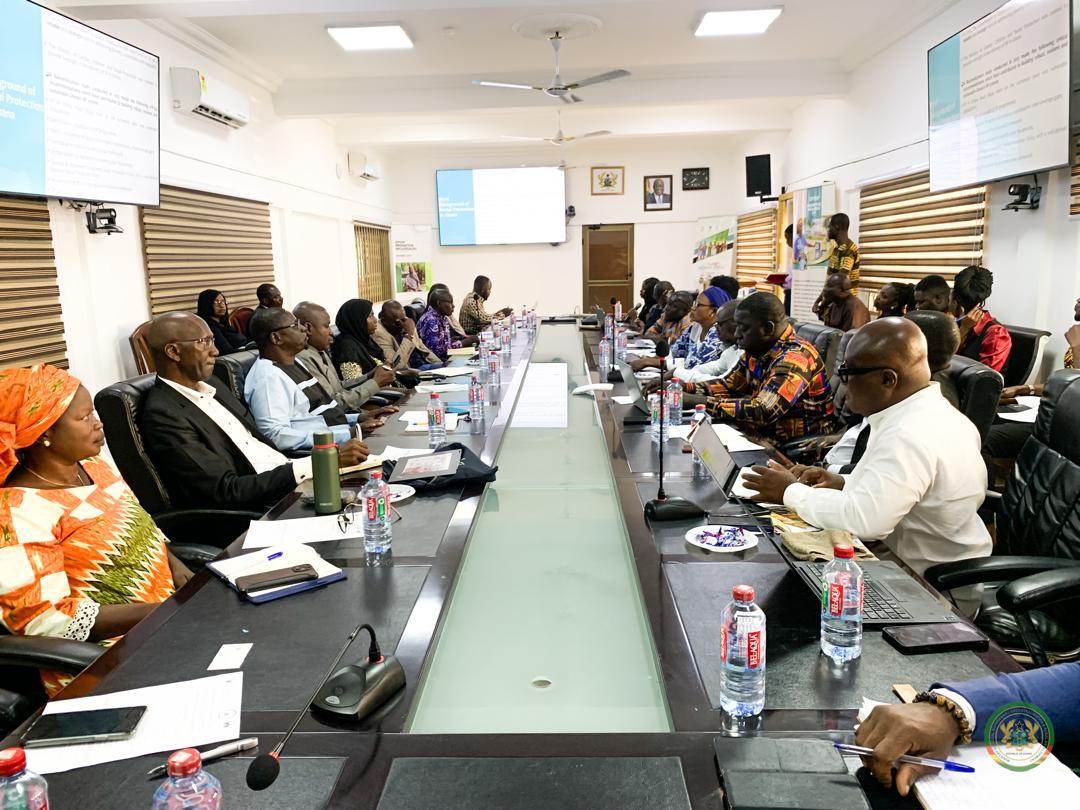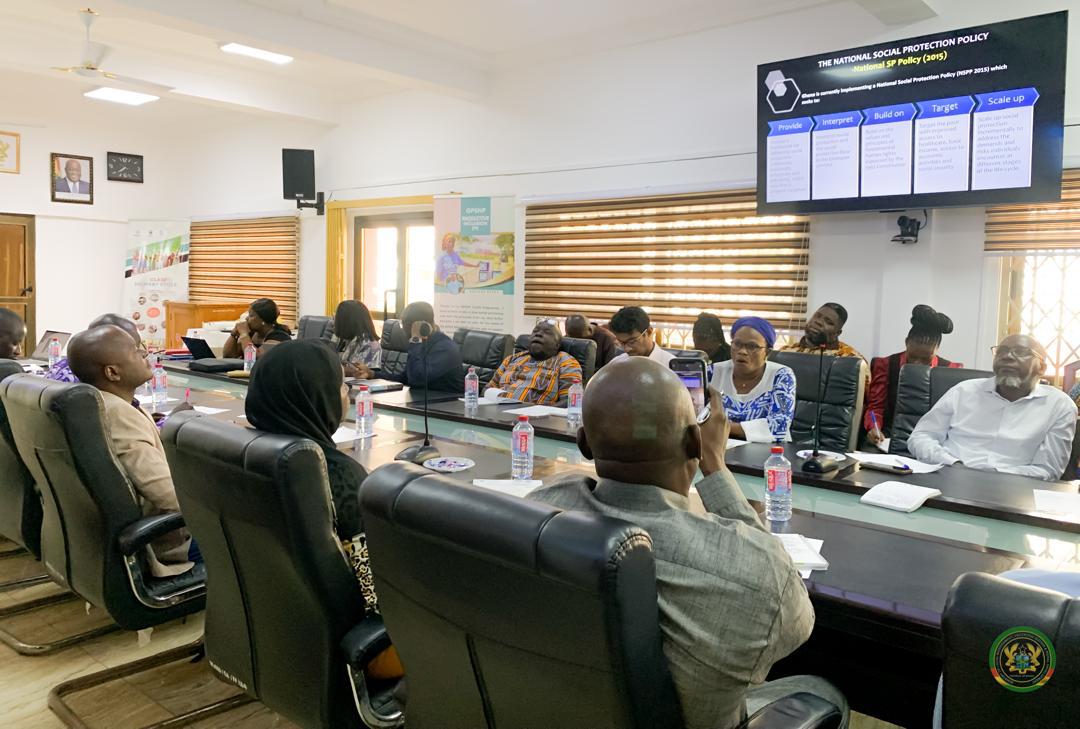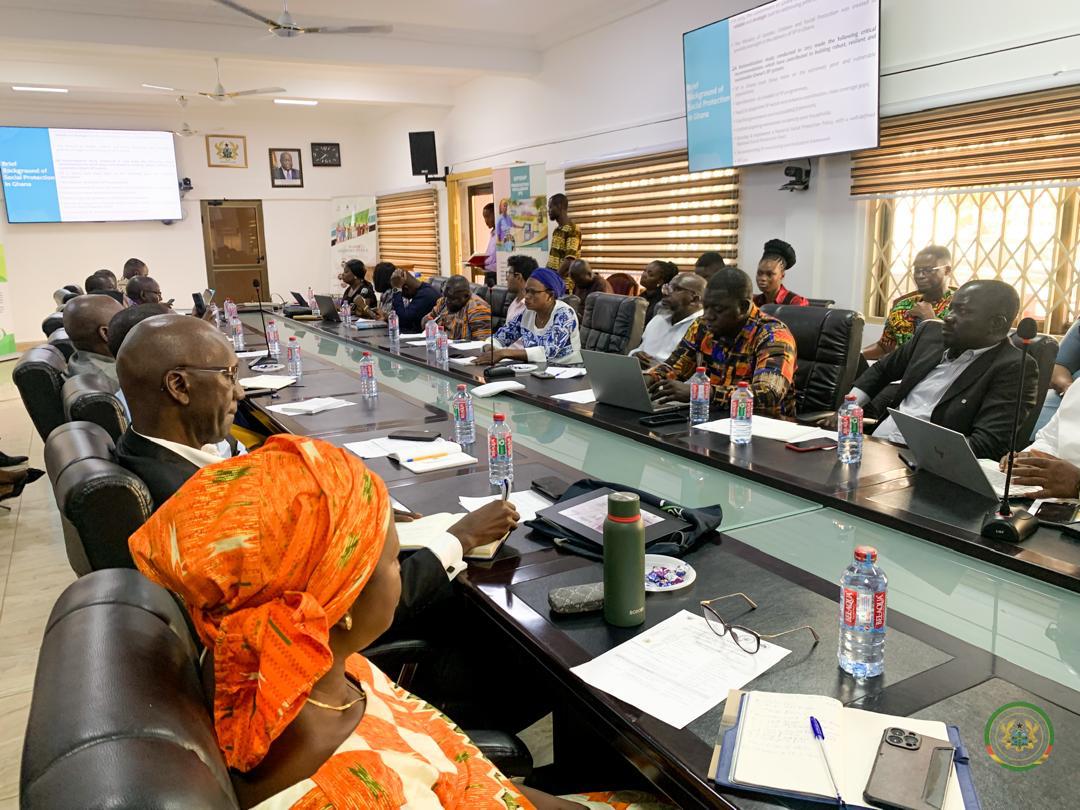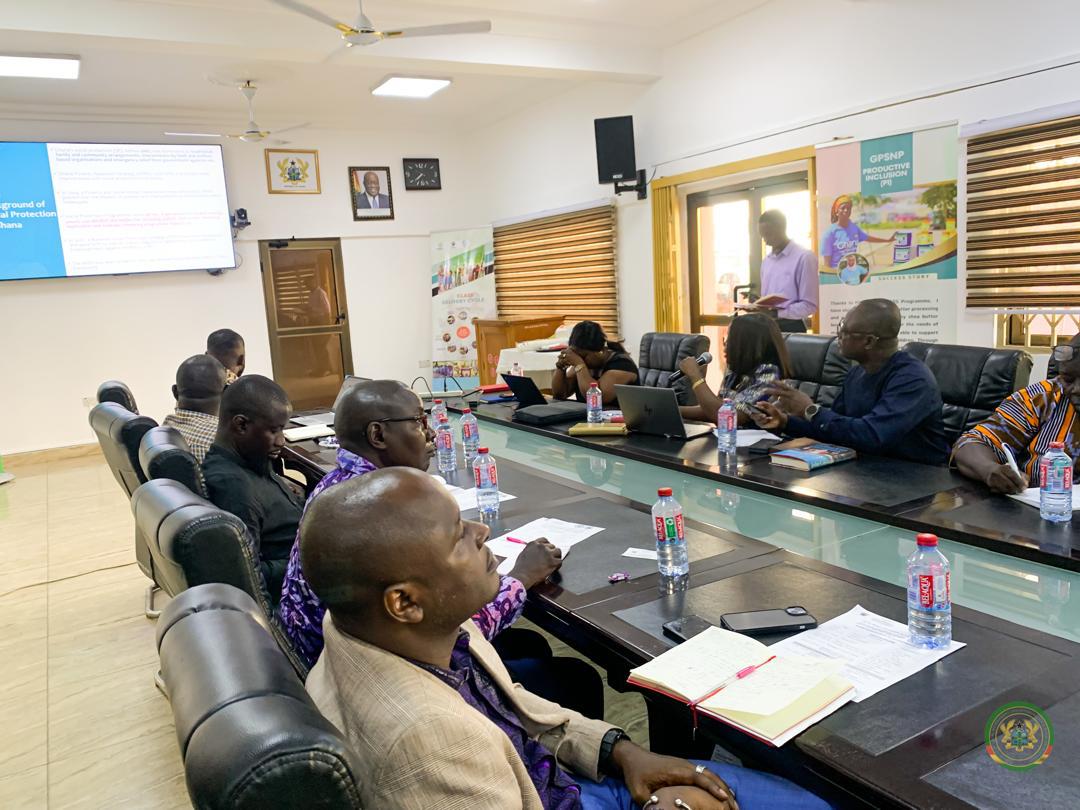At the GrEEn Project close-out event in Accra, the Chief Director of the Ministry of Local Government, Decentralisation and Rural Development, Mr. Amin Abdul-Rahaman in a speech read on behalf of the Minister for Local Government, Decentralisation and Rural Development (MLGDRD), Hon. Martin Adjei-Mensah Korsah, addressed an audience on the achievements of a project that has transformed communities across the Ashanti and Western Regions. The GrEEn Project, funded by the European Union and led by the United Nations Capital Development Fund (UNCDF), has provided job opportunities, supported sustainable infrastructure, and equipped thousands with skills in climate-sensitive development.
The GrEEn Project began with a goal to reduce irregular migration by providing sustainable, green jobs and strengthening local economies. Launched to address economic challenges and build climate resilience, the project targeted young people, women, and returning migrants. By engaging Municipal and District Assemblies (MDAs) as key project partners, GrEEn worked directly within communities to address their unique needs and potential.
“Through this project, we’ve built something valuable—jobs and skills that communities can use to grow their local economies and be better prepared for climate challenges,” Mr. Abdul-Rahaman said. “This is the foundation of Ghana Beyond Aid.”
With over 2,300 jobs created, GrEEn trained more than 800 government officials in planning for climate-sensitive development. These officials now bring a sustainability perspective to local planning, a practice that helps their communities prepare for and mitigate climate impacts. Local government staff were also trained to support micro, small, and medium enterprises (MSMEs), providing financial education, digital tools, and formal business practices for local entrepreneurs, many of whom are women.
The Head of Ghana’s Local Government Service, Dr. Nana Ato Arthur, commended the project for aligning with Sustainable Development Goals and Ghana’s long-term commitment to self-sustaining economic growth. “GrEEn has shown us that with the right partnerships and tools, we can build our local economies and create jobs right here in Ghana,” he said.
At the close of the event, Mr. Abdul-Rahaman appealed for further support to continue the GrEEn Project’s work, including expanding its benefits to new regions. By focusing on local communities and sustainable practices, the GrEEn Project has laid the groundwork for a greener, more resilient Ghana—one that grows opportunities for its people close to home. Give a new headline for this news story. very very straight to the point and let it be relevant to the content of the news story. The project has wrapped up, successes highlighted, calls for a new phase. produce only the headline
SOURCE: Darling Maame Efua Cann, Stephanie Edem Klutsey and Melody Hini-Amoako
(Public Relations Unit MLGDRD)


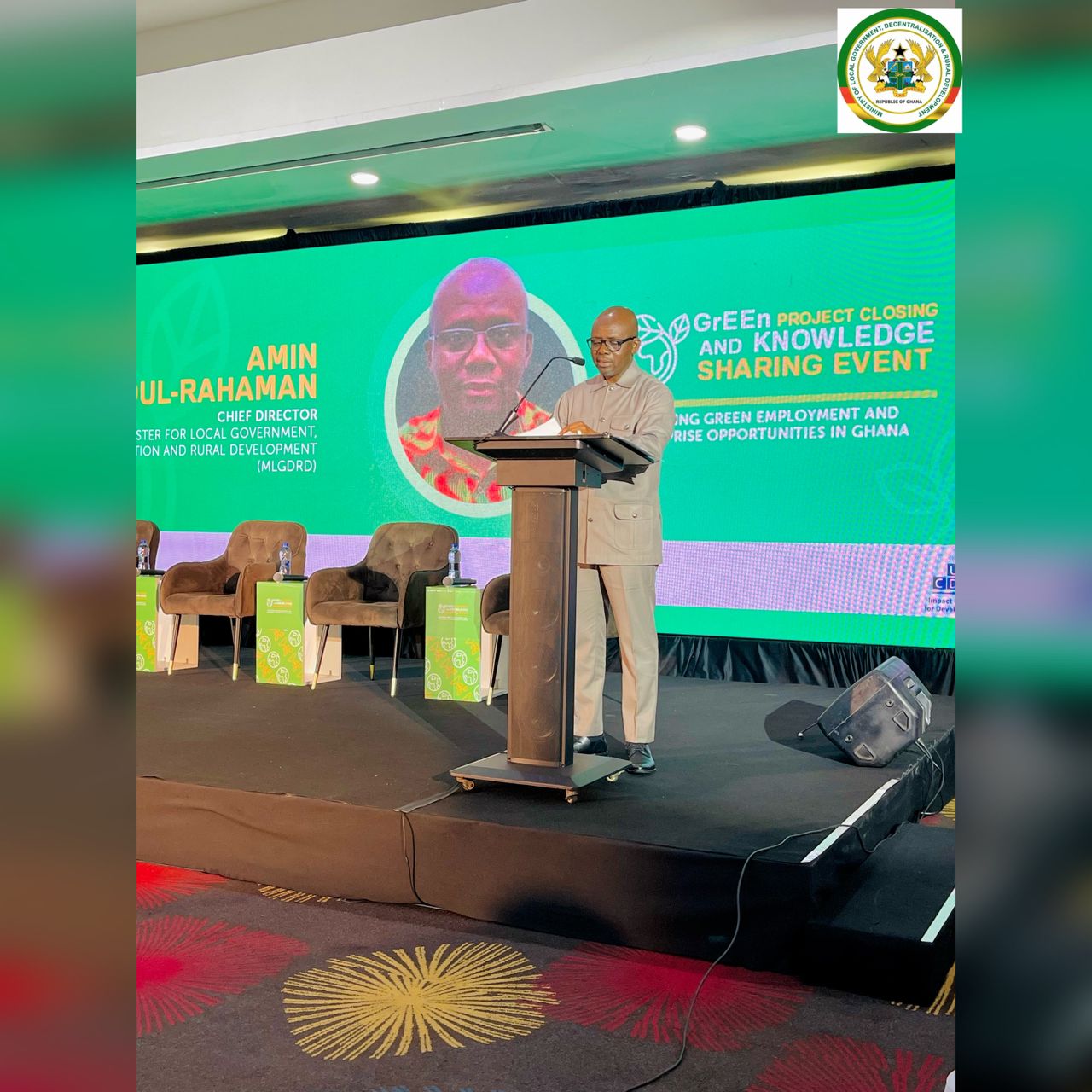
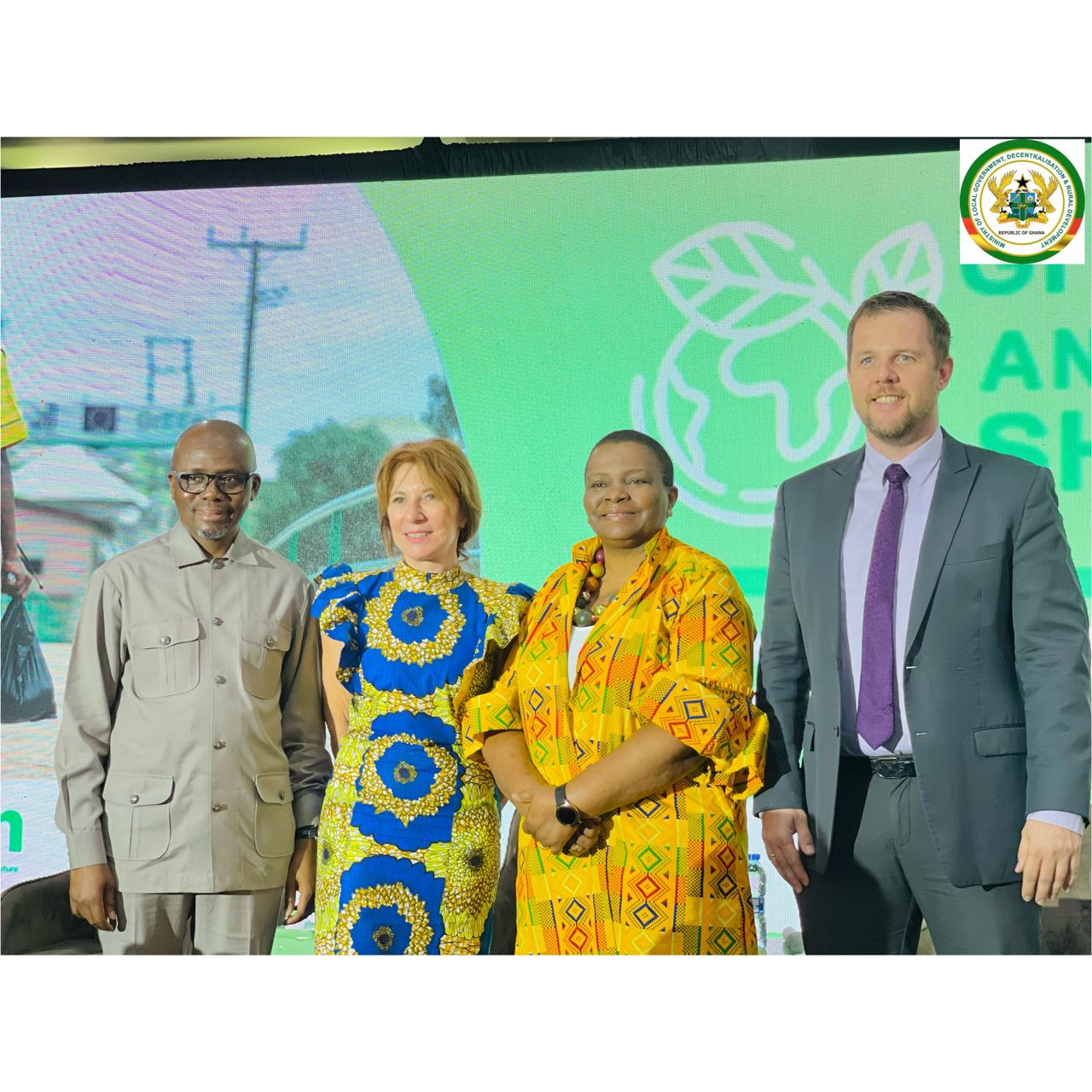
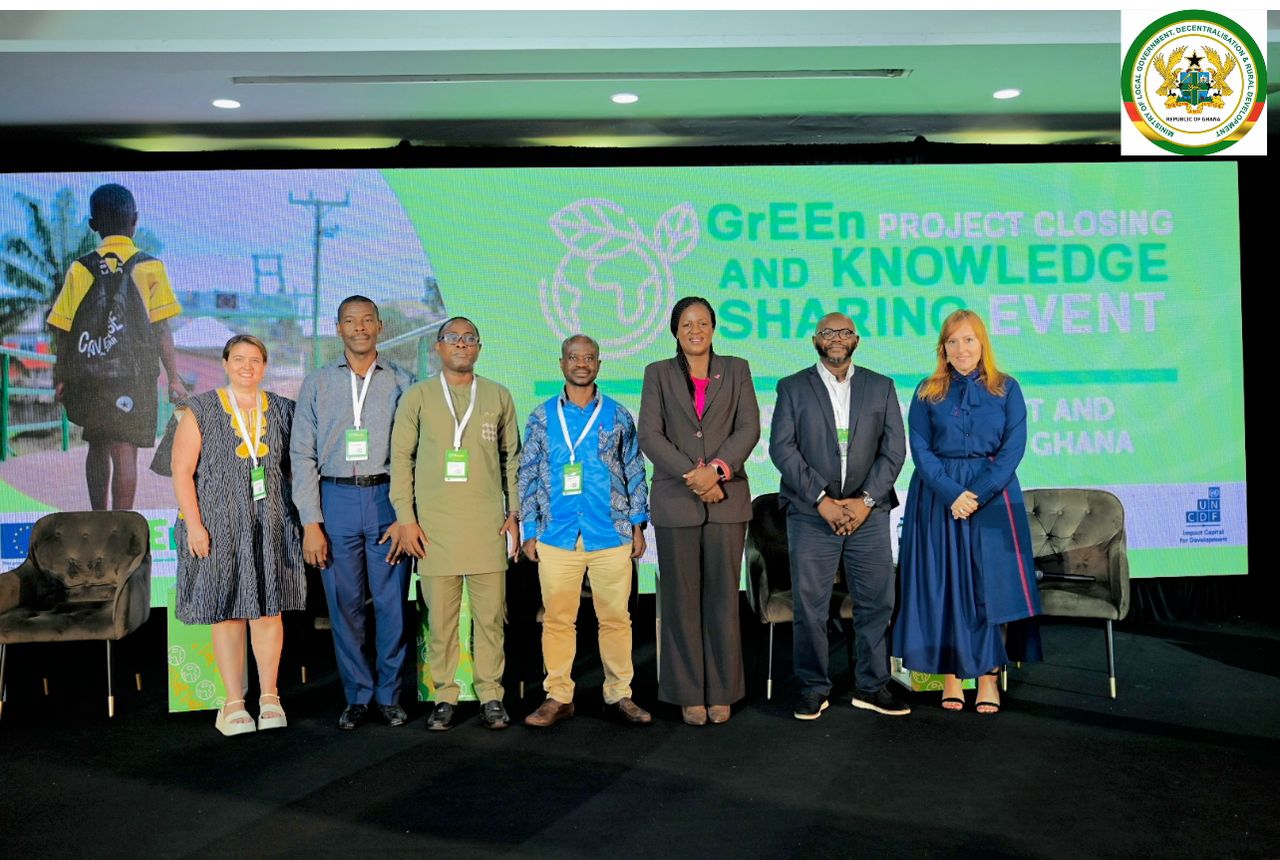
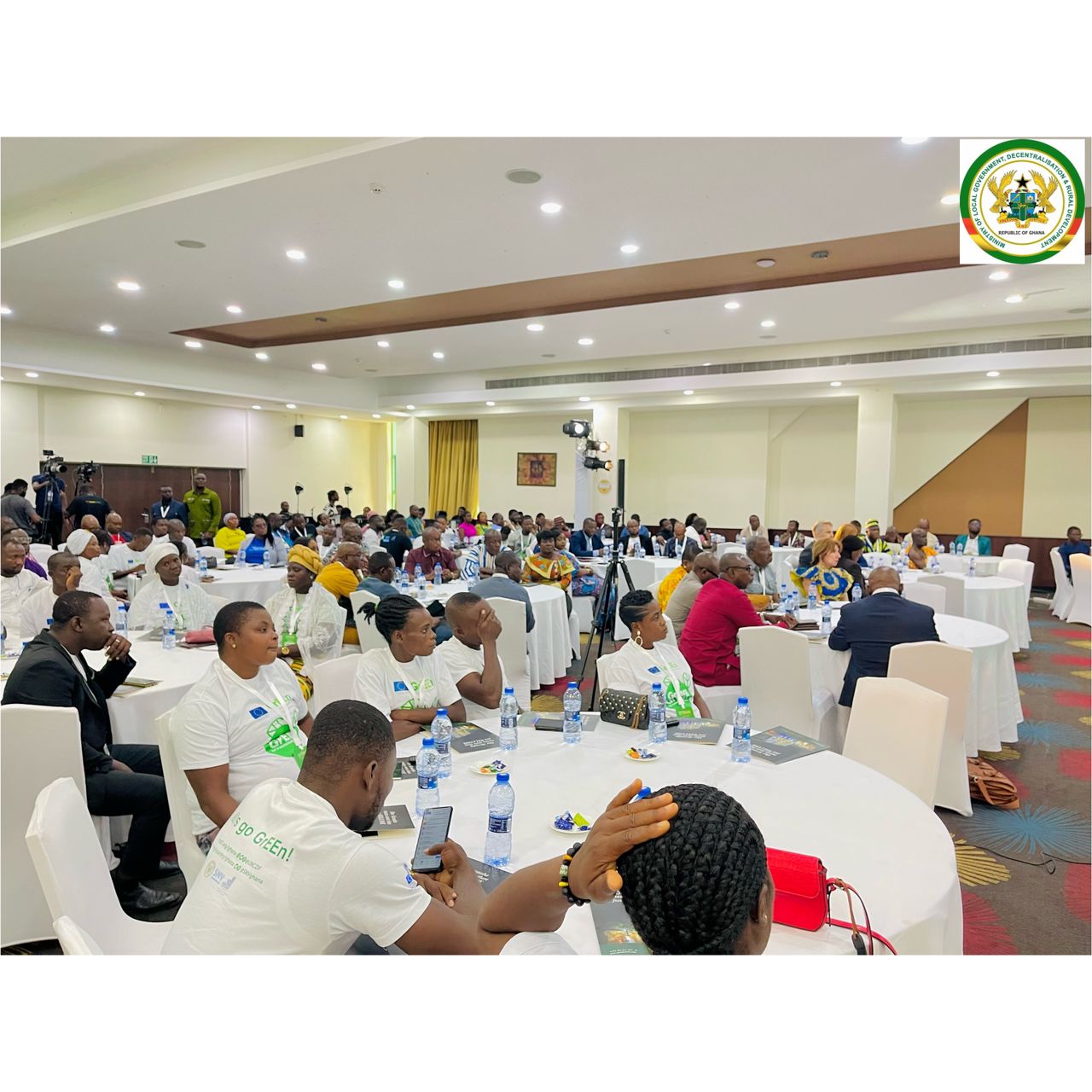
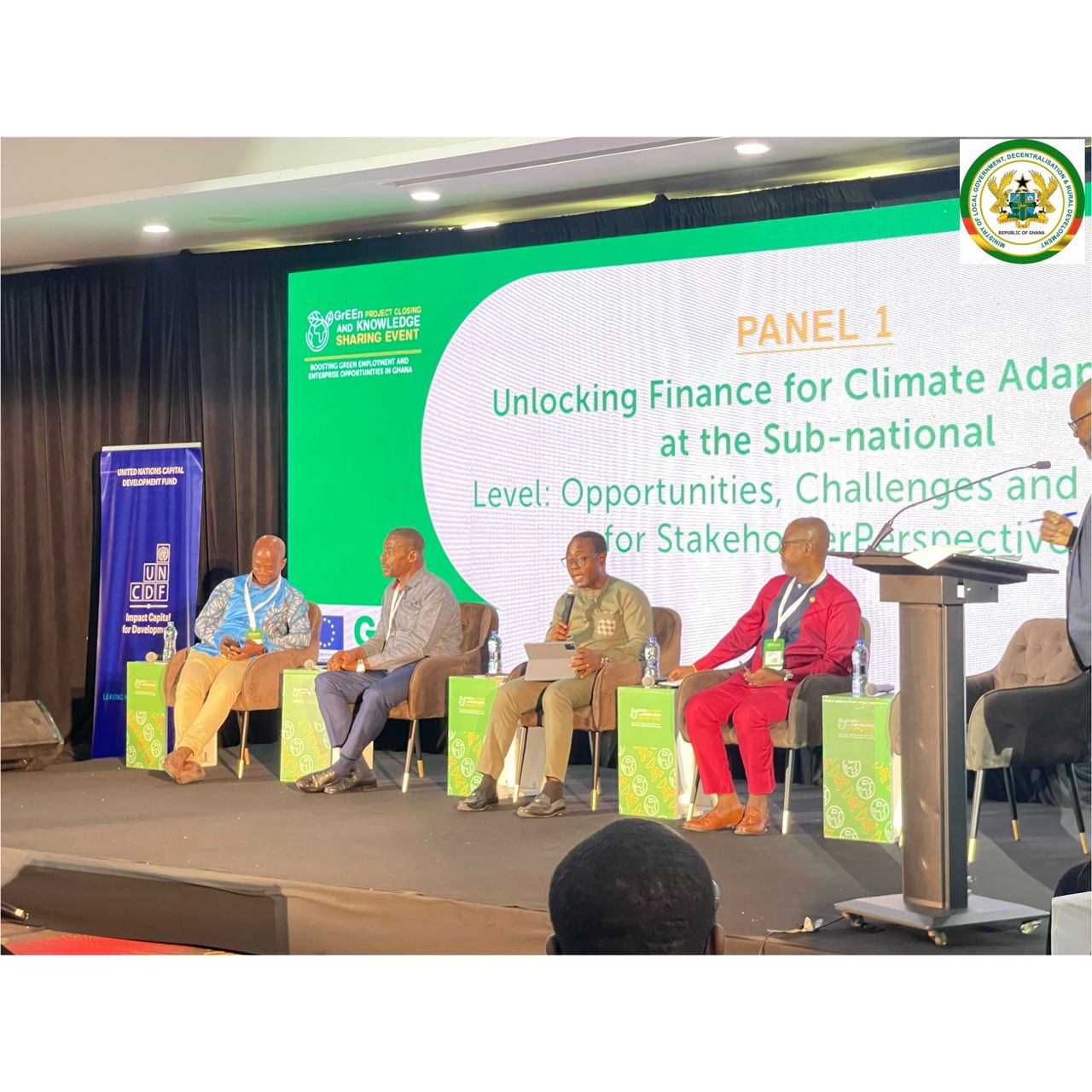
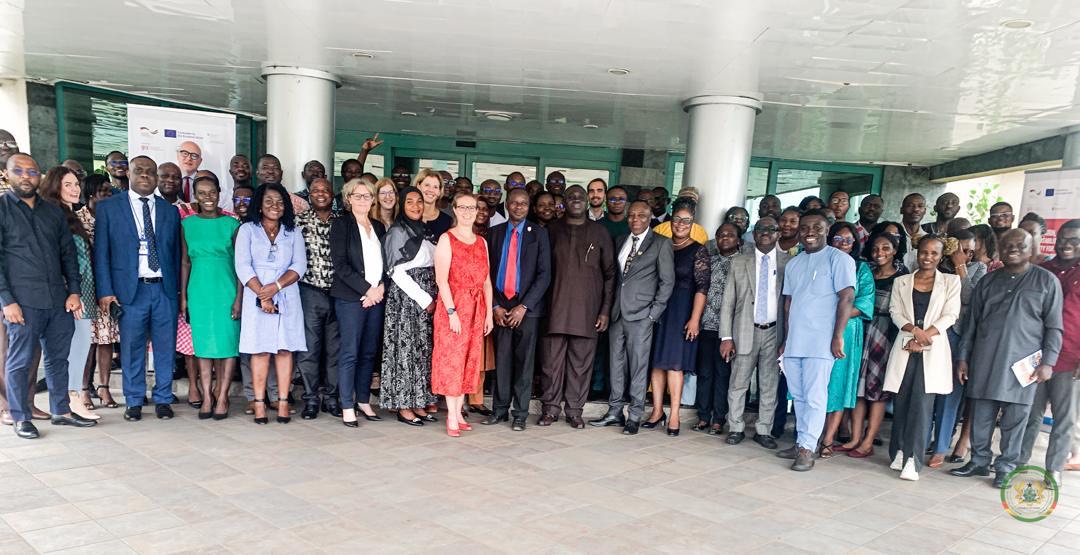
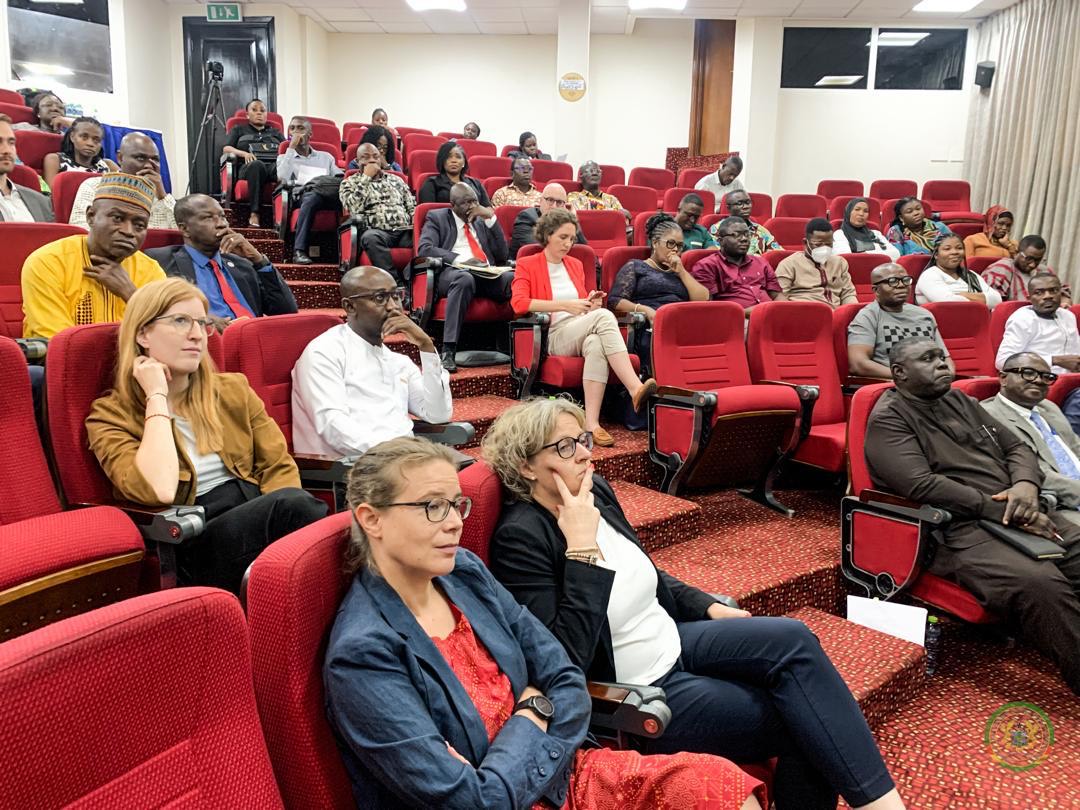
.jpg)
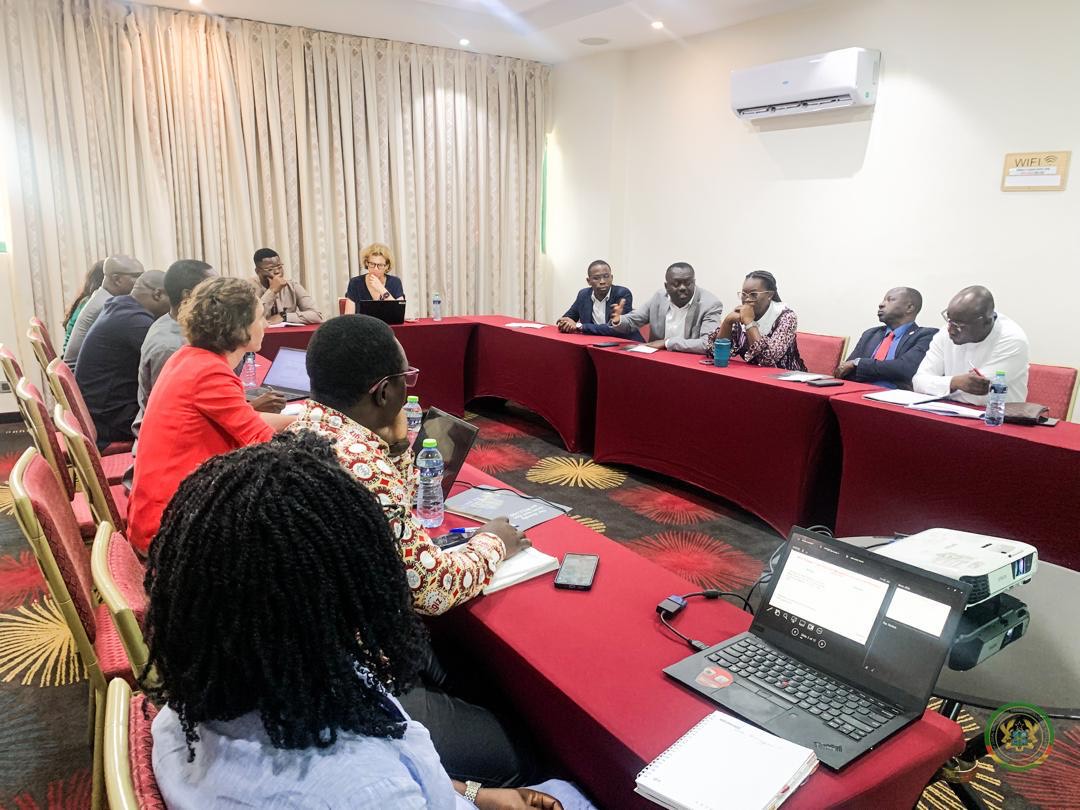
.jpg)
